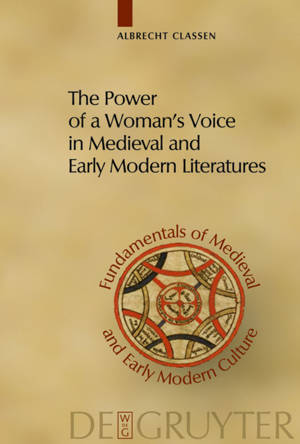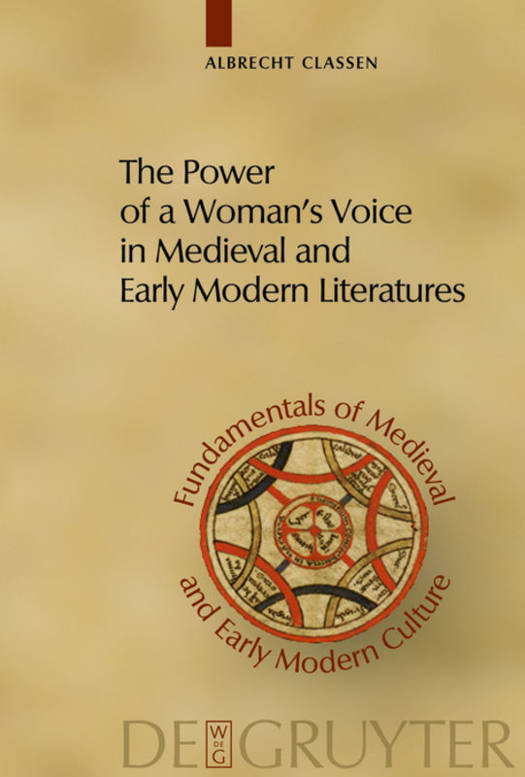
- Afhalen na 1 uur in een winkel met voorraad
- Gratis thuislevering in België vanaf € 30
- Ruim aanbod met 7 miljoen producten
- Afhalen na 1 uur in een winkel met voorraad
- Gratis thuislevering in België vanaf € 30
- Ruim aanbod met 7 miljoen producten
Zoeken
The Power of a Woman's Voice in Medieval and Early Modern Literatures
New Approaches to German and European Women Writers and to Violence Against Women in Premodern Times
Albrecht Classen
€ 101,45
+ 202 punten
Omschrijving
The study takes the received view among scholars that women in the Middle Ages were faced with sustained misogyny and that their voices were seldom heard in public and subjects it to a critical analysis. The ten chapters deal with various aspects of the question, and the voices of a variety of authors - both female and male - are heard. The study opens with an enquiry into violence against women, including in texts by male writers (Hartmann von Aue, Gottfried von Straßburg, Wolfram von Eschenbach) which indeed describe instances of violence, but adopt an extremely critical stance towards them. It then proceeds to show how women were able to develop an independent identity in various genres and could present themselves as authorities in the public eye. Mystic texts by Hildegard of Bingen, Marie de France and Margery Kempe, the medieval conduct poem known as Die Winsbeckin, the Devout Books of Sisters composed in convents in South-West Germany, but also quasi-historical documents such as the memoirs of Helene Kottaner or Anna Weckerin's cookery book, demonstrate that far more women were in the public gaze than had hitherto been assumed and that they possessed the self-confidence to establish their positions with their intellectual and their literary achievements.
Specificaties
Betrokkenen
- Auteur(s):
- Uitgeverij:
Inhoud
- Aantal bladzijden:
- 459
- Taal:
- Engels
- Reeks:
- Reeksnummer:
- nr. 1
Eigenschappen
- Productcode (EAN):
- 9783110199413
- Verschijningsdatum:
- 18/06/2007
- Uitvoering:
- Hardcover
- Formaat:
- Genaaid
- Afmetingen:
- 157 mm x 229 mm
- Gewicht:
- 771 g

Alleen bij Standaard Boekhandel
+ 202 punten op je klantenkaart van Standaard Boekhandel
Beoordelingen
We publiceren alleen reviews die voldoen aan de voorwaarden voor reviews. Bekijk onze voorwaarden voor reviews.











